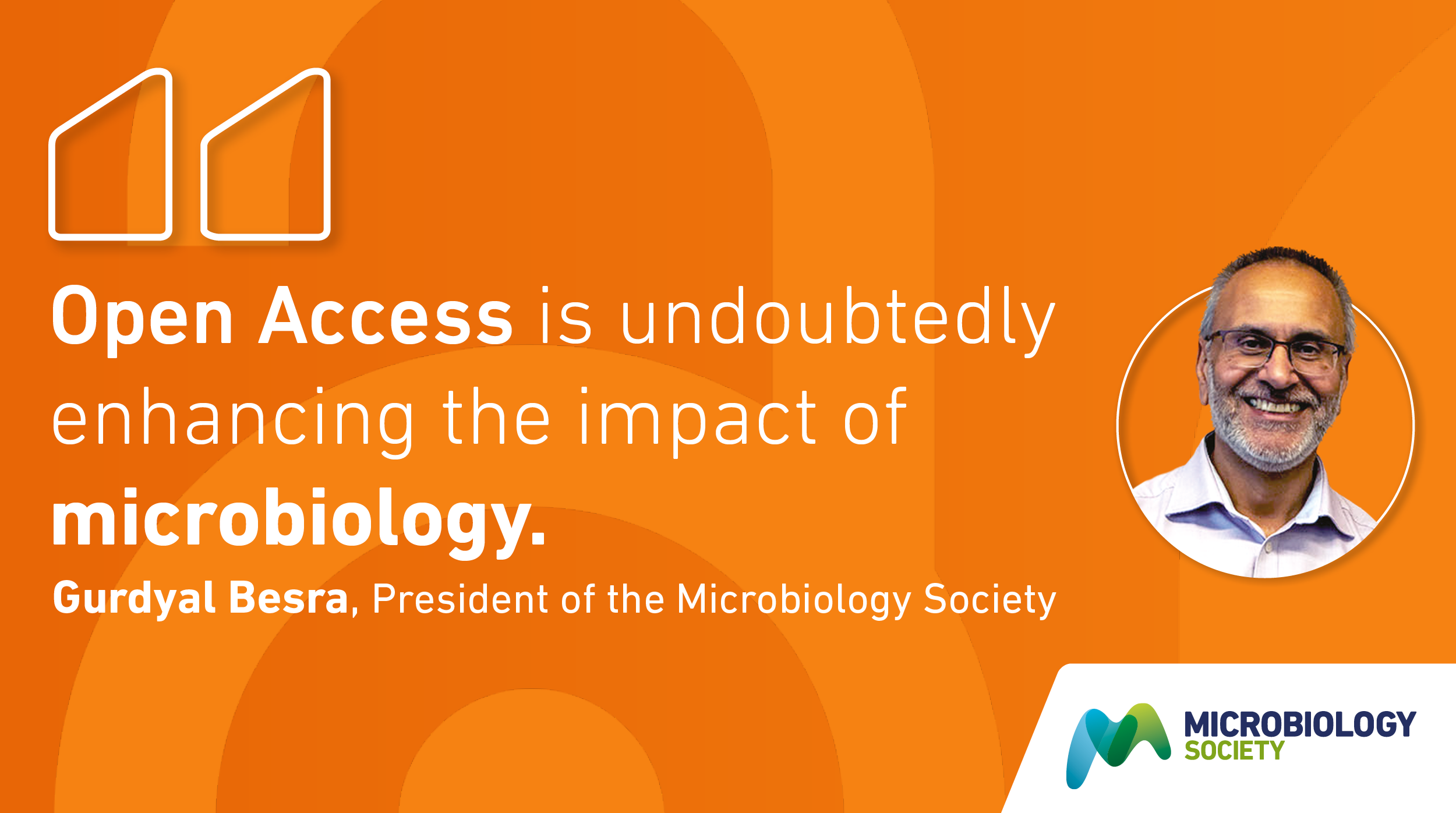Community over Commercialization: supporting researchers through not-for-profit Open Access
Posted on October 24, 2023 by Professor Gurdyal Besra
Each October, Open Access Week brings together individuals and organisations from across the globe in conversation about the challenges and opportunities for making research more open, equitable and sustainable. This year’s theme of “Community over Commercialization” is an important one, which “seeks to encourage a candid conversation about which approaches to open scholarship prioritize the best interests of the public and the academic community—and which do not.”1
The concept of “Community over Commercialization” particularly resonates with the Microbiology Society’s work as a not-for-profit publisher. Each of our six peer-reviewed titles offers a board of expert editors and high-quality peer review, which are crucial to help researchers improve, validate and share their research widely. What’s more, publishing revenue raised helps us to continue serving our community in the form of events, grants and professional development opportunities.
Publishing just one article with us can raise enough revenue to give grants to four early career researchers to attend our Annual Conference. Two articles can equate to the cost of a research visit grant, supporting opportunities for innovative collaboration in the field. Choosing to publish with us makes a real difference in our community.
Since publishing its first article over 75 years ago, the Microbiology Society has been a part of many shifts in the landscape of scholarly publishing. Most significantly, we’ve seen the advent of Open Access to remove paywalls for readers, expanding the reach of research to anyone, anywhere in the world. I am proud that during my term as President we have relaunched our sound science title, Access Microbiology, as an innovative open research platform, and that our founding journal, Microbiology, has transitioned to fully Open Access.
The move to Open Access is undoubtedly enhancing the impact of microbiology. More widely accessible peer-reviewed research can ensure that sound science is reaching scientists, members of the public, journalists and policymakers who need it. Open Access also helps authors to make an impact: articles published Open Access in Society titles get on average 2.6 times more citations and 4 times more usage than paywalled content, based on Web of Science data.
That said, the route to Open Access is not without barriers for the global research community. Sustainable, high-quality publishing is not free, so Open Access shifts the financial model from “pay to read” to “pay to publish”. Authors must often seek funding for article processing charges, which can cause a particular strain to those in regions and institutions where infrastructure does not exist to support this.
The Microbiology Society offers several options for Open Access publishing across its portfolio. Publish and Read offers a comprehensive, streamlined model for institutions: paying one annual fee covers full read access and unlimited Open Access publishing for researchers in any Microbiology Society title. In addition, we offer full Open Access fee waivers for authors in lower- and middle-income countries included on the World Health Organisation’s HINARI programme list.
The Microbiology Society is committed to making the transition to Open Access as sustainably and equitably as we can. We welcome Open Access publishing across our portfolio of three fully Open Access titles (Microbiology, Access Microbiology and Microbial Genomics) and three hybrid titles (Journal of Medical Microbiology, Journal of General Virology and International Journal of Systematic and Evolutionary Microbiology). Find out more about our options for Open Access publishing on our website.

